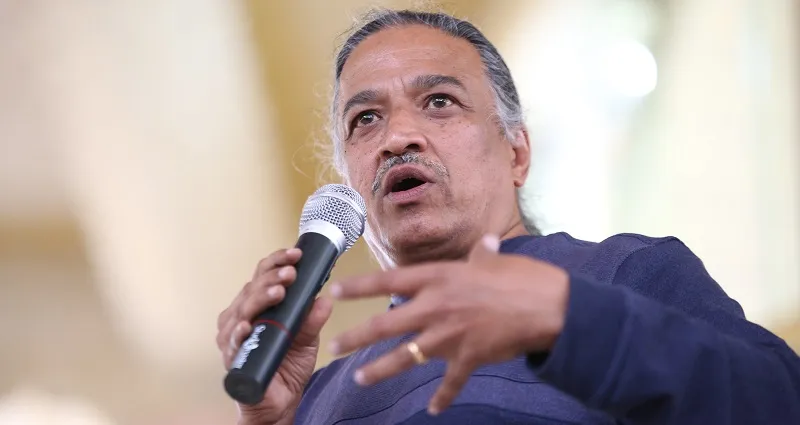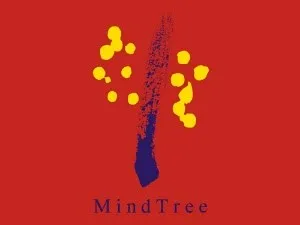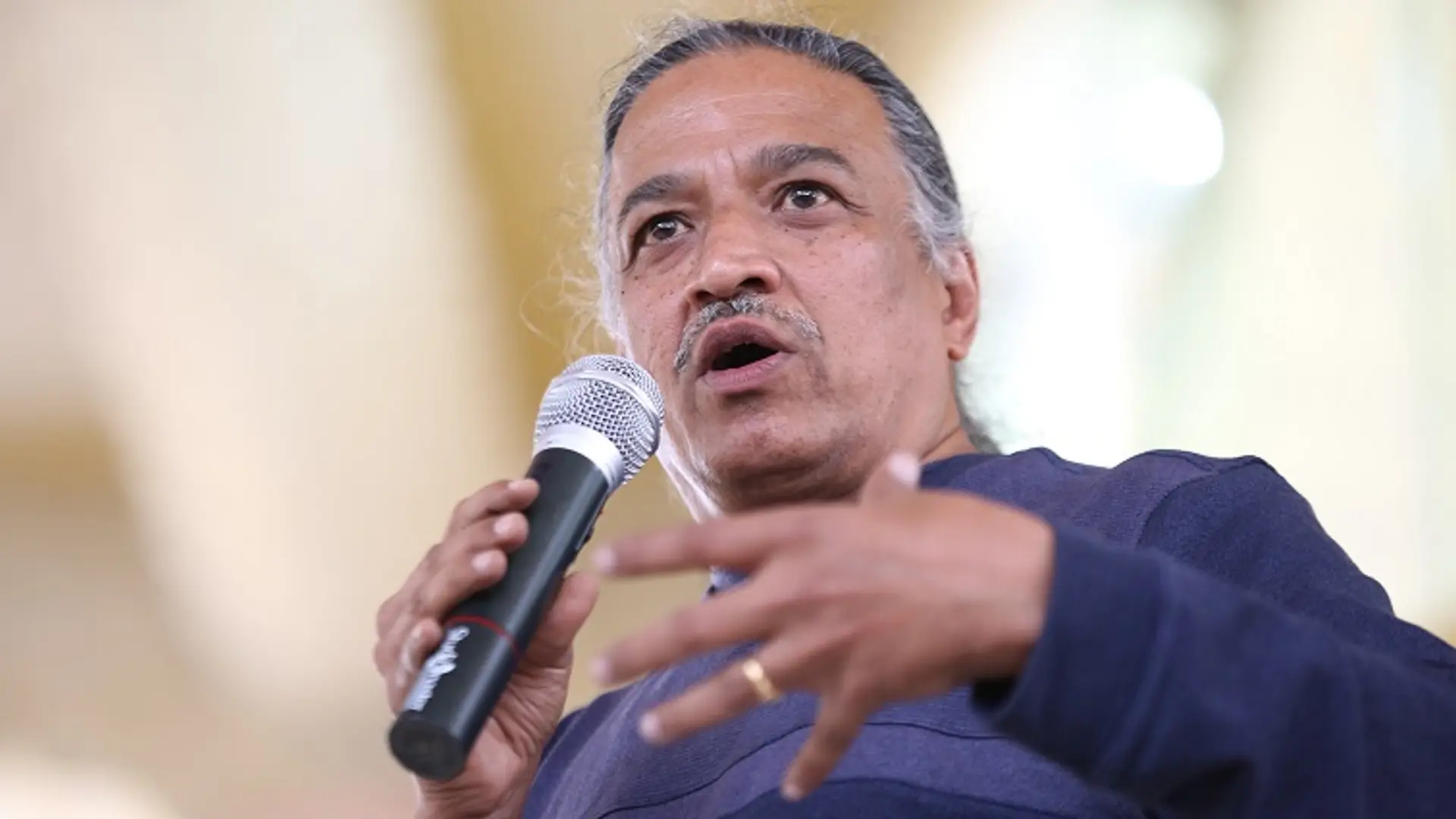Mindtree’s commandments for entrepreneurial success
It was 1998, a year India wasn’t even privy to the word 'entrepreneurship'.
That’s when a bunch of friends drove to Vishakhapatnam to brainstorm on building a business. And this number wasn’t an odd one or two but rather 10, who later became the founders of the business.
Today, that business - Mindtree - has led a successful IPO having oversubscribed 103 times. Its annual revenue stacks up to $700 million, growing at 23 per cent with 15,000 employees working across 23 offices in 14 countries now.
But as one of the co-founders of the company N.P. Parthasarathy tells his rapt audience at Jagriti Yatra's journey for entrepreneurs, the enterprise was driven by just one ideal:

“A different way of doing things!”
And for that, conviction was critical.
This difference worked at even the rudimentary level of naming their organisation. Rather than going ahead with the decision themselves, they chose to outsource the process, a move unheard of at that time. And there was a company called ‘Name It’ doing the job for them.
The guideline given was pretty simple: the name should be globally scalable and the URL should be available. According to Parthasarathy, 700 names were prompted and the founders narrowed down on the current one.
But the differentiation continues across company decisions.
Autism and the logo
After the name was settled, it was time to finalise the logo. The co-founders visited a school for autistic children.
They took a class and showed the children logos of different companies, asking them to repeat the exercise. And there is it was, Parthasarathy says,

“Their beautiful visual identity became their logo.”
Mindtree stands for 'Imagination' represented by the blue stroke, 'Action' represented by the red and 'Enjoyment' by the yellow dots as shown (left).
And that’s not it; the walls of the offices at Mindtree are strewn with life-size drawings and collages by kids from Spastic Society of Karnataka.
Circle of life
Parthasarathy also tells us that imagination was a key part of their journey. He narrates an incident at his office.
One of the employees told his manager that he wanted to quit. With a lot of prodding, the employee finally told the manager the reason. His father- in-law was apprehensive about him continuing his job at Mindtree since it wasn’t as reputed as an IBM or Microsoft.
The manager rather than letting his team member go started working on a magazine called ‘Circle of Life’. It was an internal effort, publishing content to apprise the families of Mindtree’s employees about their role in the organisation and what they really do.
This, according to the co-founders, became a huge success
. Soon, they printed it in other languages as well.
Other differentiations
It’s the democratisation of the value system that stands out for this success story. Parthasarathy says,
“Our value system was designed by the whole company.”
- Mindtree calls its employees 'Mindtree Minds,' as they feel the term ‘resource’ underplays the contribution of the employees in making the organisation
- HR is called 'people’s function'
- 'All hands’ meeting is called ‘All Minds’ meeting
- They term their work as ‘mission critical’, and have a concept to learn from the most unusual sources. For example, the executive board invited doctors like Devi Shetty who is a renowned cardiac surgeon in Bengaluru to give talks to the employees. This is because the founders think that there isn’t anything more mission critical than saving someone’s life
Parthasarathy also thinks that an organisation should be really high on integrity
“For me, integrity is doing the right thing, when no one is watching over you. One should follow some rules if they exist. If the rules aren’t there, then one should exercise fair judgment. If even that doesn’t exists one should seek help actively from peers and other colleagues.”
Personal learnings
As an entrepreneur, he sets a few principles for the organisation. This results in ordinary people delivering extraordinary results, with leaders walking the talk and honouring their word. However, his ultimate principle as marathon runner and an entrepreneur for young budding startups is,
“Long distance runners must be ready to bear segmented pain. Just like a marathon, where after the first 10 km a certain part of your leg becomes numb and stops paining while there is a pain in another part of your leg which picks up.”
He says that similarly in the marathon of building a sustainable business, entrepreneurs at different stages of life will experience different pain which they should bear and continue to move forward.
Moreover, this impresario also has his 10 commandments which he follows as personal learnings from his entrepreneurial journey
- Be decisive- Don’t get into the paralysis and analysis mode. In hindsight, an entrepreneur criticises a lot of their decisions. But he feels it is better to make a bad decision rather than just sitting on it.
- Be open, supportive and transparent – One of the best methods, according to Parthasarathy is to not compete with your own teams
- Display energy and dynamism – He says that energy is infectious, especially the positive kind.
- Have a passion outside work – Being a marathon runner, he feels that one should learn from unusual sources. For him it is the marathons he does. He also feels that folks have no reason to crib about work-life balance if they don’t have a passion outside work. He encourages that it is never too late to start a passion.
- What they see is what they should get, encouraging entrepreneurs to be themselves.
- Look up and learn- He urges budding entrepreneurs to remove their blinkers and be more mindful of other people as well learn from them. He believes that you never know from whom one can draw inspiration from.
- Be detail-oriented – Parthasarathy believes that you can’t solve a garbage problem by sitting in an air conditioned office. He believes that the devil is in the detail and one should pay close attention to learn.
- Build patience – He says that this might take some time but it is one of the most essential traits for the sustainability of a business.
- Ambition is no substitute for experience
- Keep fit – He says that personal well-being is absolutely essential since an imbalance might reflect in your work.
But as he finishes, Parthasrathy infuses a different level of jagriti or awakening to the crowds on Day 3 of the yatra (journey) politely advising,
“It is not the money but the simple things in life which will matter to your success.”



